Discover The Best AI Agents For Your Needs
1150 AI Agents across 8 categories in the most comprehensive AI agent directory. Updated daily with the latest agents.
Trusted by thousands of users worldwide
AI Assistant
Online
How can I help you today?
I need help finding a marketing AI agent for my business
I can recommend several marketing AI agents based on your specific needs. Would you like me to analyze your website first?
Why Choose Our AI Agent Directory
We help you navigate the rapidly evolving world of AI agents with comprehensive information and tools.
Comprehensive Directory
Access the largest collection of AI agents across multiple categories, all in one place.
Verified Reviews
Make informed decisions with authentic ratings and reviews from real users.
Daily Updates
Stay ahead with our constantly updated directory featuring the latest AI agent releases.
Detailed Comparisons
Compare features, pricing, and capabilities to find the perfect AI agent for your needs.
Featured AI Agents
View all →Just Launched Agents
View all →Browse Agents by Category
View all categories →Sales AI Agent
48 AI agents in this category
Voice AI Agents
60 AI agents in this category
Customer Service
64 AI agents in this category
AI Agents Platform
131 AI agents in this category
Digital Workers
51 AI agents in this category
Marketing AI Agent
26 AI agents in this category
Content Creation
35 AI agents in this category
Observability
19 AI agents in this category
AI Agents Directory 2025: Expert Guide to Finding the Right Agent
The AI agents ecosystem now boasts 1,156 agents spread across 55 different categories in 2025. This expansion has fundamentally changed our relationship with technology. Industry experts believe AI agents could leave a bigger mark than the internet itself.
Your business needs the right AI agent, especially since 81% of buyers research online before purchasing. Today's AI landscape features 132 platforms for agent creation and customization. It also offers 94 development frameworks alongside specialized tools - from productivity assistants to voice-enabled AI solutions.
Let this piece help you explore the AI agents world, grasp various categories, and pick the ideal agent for your requirements. You'll discover evaluation methods, deployment tactics, and sources for both premium and free AI agents that match your objectives.
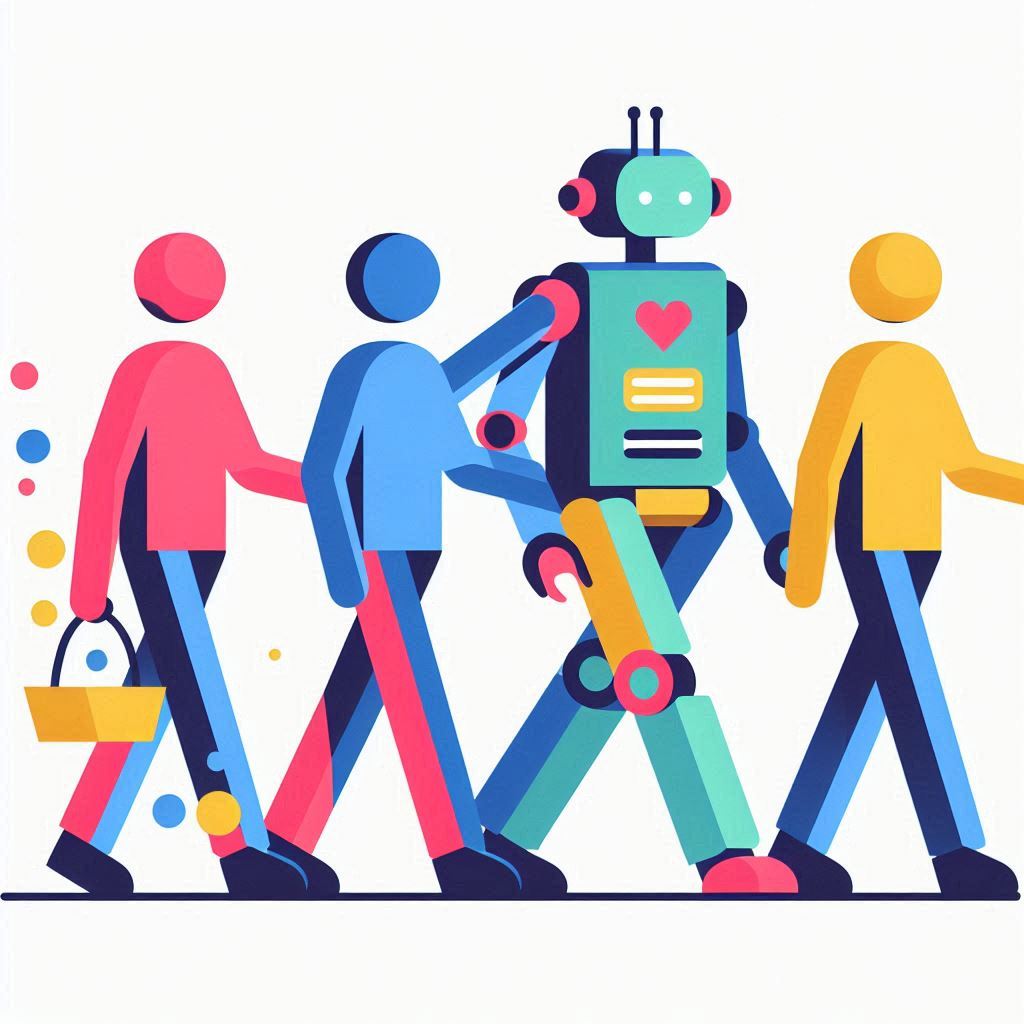
Understanding the AI Agents Ecosystem in 2025
Learning about AI agents means understanding their core functionality and growing capabilities in 2025. These autonomous systems reshape business operations, and knowing how to direct the ecosystem has become more valuable.
What are AI agents and how do they work?
AI agents are autonomous or semi-autonomous software systems that see their environment, make decisions, and act to reach specific goals with minimal human input [1]. Unlike traditional chatbots with rigid scripts, AI agents adapt to changing environments, learn from experiences, and work independently [1].
These intelligent systems use a cyclical sense-think-act process. They collect input from their environment through perception. The agent's central "brain"—usually a powerful large language model (LLM)—processes tasks and assesses possible actions. The system makes decisions through reinforcement learning, which human feedback and past interaction memories enhance. The agent then carries out chosen actions by calling internal or external tools through API integrations [1].
The agent's architecture has improved by a lot in 2025, and several distinct types are now available:
- Reactive agents: Respond to environments based on predefined rules without storing history
- Deliberative agents: Use internal modeling and reasoning for informed, long-term decisions
- Hybrid agents: Combine reactive and deliberative approaches for quick decision-making [1]
Modern AI agents stand out because they break down complex tasks into manageable steps. Recent advances in natural language processing, machine learning, and API tool access let these agents handle sophisticated tasks that once needed substantial human effort.
The growth of AI agents ecosystem
The AI agent market has grown explosively, reaching an estimated USD 5.40 billion in 2024. Experts project it will expand at a remarkable compound annual growth rate (CAGR) of 45.8% from 2025 to 2030 [1]. Another industry report suggests the market will hit USD 47.1 billion by 2030 with a slightly different CAGR of 44.8% [1].
Several key factors drive this quick expansion:
- Technological advancements: Better natural language processing lets AI agents understand and generate more sophisticated human language [1]
- Widespread cloud adoption: Cloud-based platforms make AI agent deployment easier and more cost-effective for businesses [1]
- Customer experience needs: Consumers want individual-specific interactions that AI agents can provide [1]
- Multi-agent systems: More businesses use collaborative AI systems that solve complex problems together [1]
The ecosystem covers functions in various industries. A 2025 Connectivity Benchmark Report shows 93% of IT leaders plan to use autonomous AI agents within two years, and almost half already have [1].
AI-powered agent ecosystems boost innovation and growth by automating routine tasks and offering valuable insights. This automation lets human workers concentrate on creative and strategic activities, which encourages innovation in retail, automotive, technology, and other sectors [2].
Key players in the AI agents landscape
Major companies expand what's possible in the AI agents landscape. Microsoft's extensive research in multi-agent systems has created a detailed agent library and added agent capabilities to Microsoft 365 and Dynamics 365. Their Copilot Studio helps non-developers build custom agents connected to business data [3].
OpenAI advances the field with sophisticated models like GPT-4o that excel at understanding and generating human language, making them more useful worldwide [1]. Google DeepMind focuses on deep reinforcement learning and neural networks to solve complex problems in healthcare, energy, and scientific domains [4].
Other important players include:
- IBM: Leading AI agents for enterprise applications with 99% of surveyed developers learning about or developing AI agents [3]
- NVIDIA: Offering specialized GPU design and software tools that speed up AI model training [4]
- Anthropic: Building models focused on safety and reliability through their Claude AI family [4]
- Salesforce: Creating their Agentforce platform for smooth integration within their app ecosystem [3]
Startups like SoundHound AI (voice technologies), Midjourney (image generation), and Rasa (open-source conversational agents) create specialized solutions for specific uses [4].
Industry leaders say AI agents are no longer experimental tools but crucial assets for organizations guiding digital transformation. These autonomous, learning systems have become vital in customer service, cybersecurity, finance, healthcare, and beyond [5].
The AI agent ecosystem continues to mature throughout 2025. Finding the right solution in a detailed AI agents directory becomes crucial for businesses that want to stay competitive in an increasingly automated world.
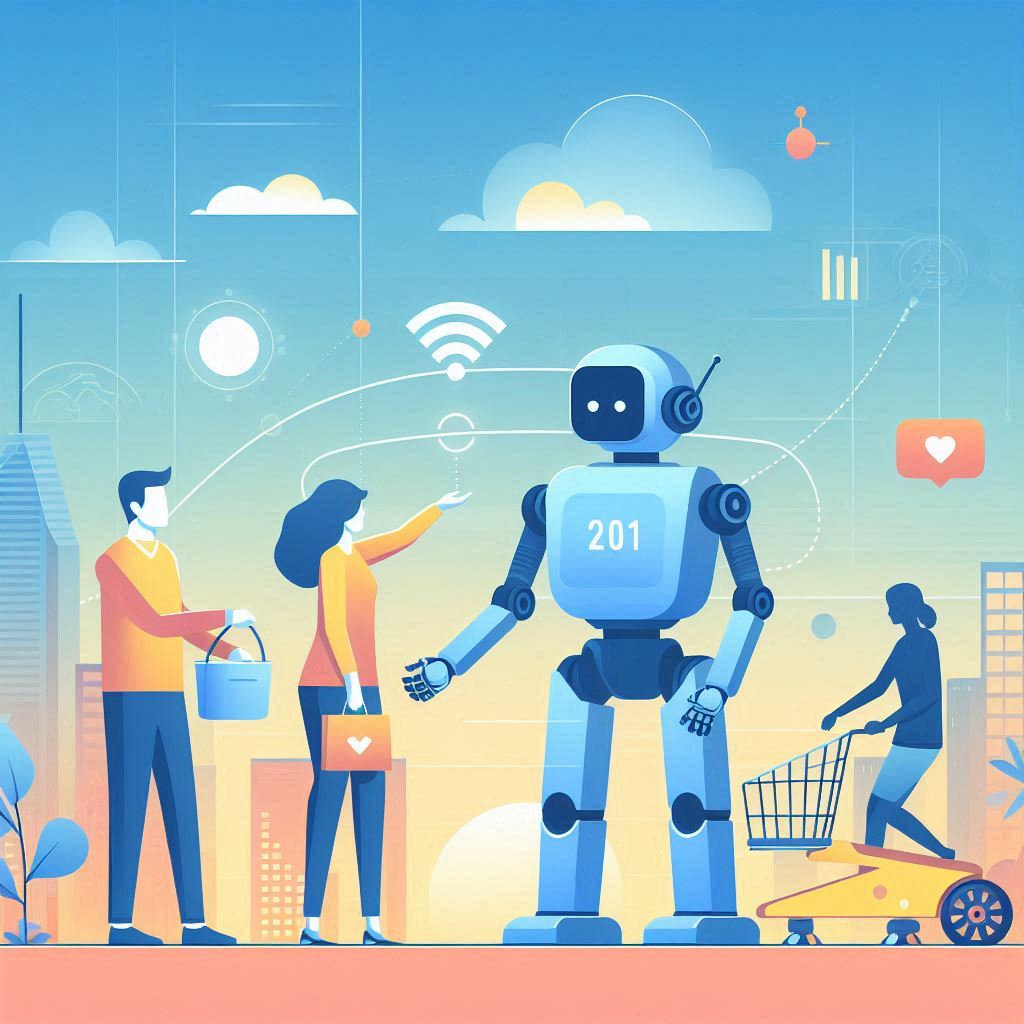
Navigating the AI Agents Directory Landscape
Finding your way through the big digital world of AI agents needs quick tools to help you categorize and sort the growing number of solutions. AI agent directories work as essential hubs where you can find, assess, and pick the right agent that fits your needs.
Popular AI agents directories overview
The AI agent ecosystem now features several complete directories that connect developers with users. The AI Agent Store stands out as a central marketplace. You can explore specialized AI assistants in many categories here [6]. AIAgentsDirectory.com brands itself as "The World's Largest AI Agents Marketplace and Directory" and gives users a curated collection of agents sorted by popularity and functionality [7].
Beyond these major platforms, niche directories have gained ground by targeting specific agent types. To name just one example, some directories focus only on productivity tools, while others highlight development frameworks like CrewAI, AutoGen, and Microsoft Semantic Kernel [8].
These directories shine as central hubs that bring together developers who offer AI solutions and users looking for specific capabilities [3]. You can browse pre-vetted options in one place instead of endless internet searches.
Features comparison of top directories
Different AI agent directories take unique approaches to organization and user experience:
Filtering mechanisms: The AI Agent Store gives you powerful filtering through main filters (profession, tag, category, industry) and extra filters (pricing model, code access) [6]. This mix lets you search precisely for "free, open-source AI agents for software development" or "paid customer service agents for healthcare."
Categorization systems: Most directories group agents by function. AIAgentsDirectory.com splits agents into sections like Productivity AI Agents, Sales AI Agents, Customer Service AI Agents, Coding AI Agents, and Voice AI Agents [9]. The AI Agent Store goes further with 18 distinct categories including Agent Observability Tools, Virtual Workers, and AI Robotics [6].
Leaderboards and rankings: Quality options stand out through leaderboards based on views, upvotes, and verified user reviews [9]. This social proof helps you spot trusted solutions quickly.
Listing detail depth: Premium directories include complete listings with agent descriptions, key features, integration details, and user ratings [3]. This information helps you assess options faster.
How to use AI agents directories effectively
These strategic approaches will help you get the most value from AI agent directories:
Start by picking your user category. Business leaders look for ways to streamline workflows and boost team productivity. Developers showcase their AI creations to attract clients. Individual users search for personal productivity tools [3].
Make use of directory filters smartly. Instead of browsing entire categories, mix multiple filters to narrow your search. You can quickly find relevant options within your budget by filtering both industry and pricing model [6].
Reviews and ratings matter a lot. Research shows 81% of consumers look up information online before buying [3]. Focus on highly-rated options with detailed feedback to benefit from this collective wisdom.
AI agent directories are great networking spots too. You can connect with developers, talk about use cases, and find potential collaborators [3]. This networking adds extra value beyond just finding agents.
Developers who list their agents get major benefits. These include better visibility, more credibility through trusted platforms, useful user feedback, and ways to measure against similar solutions [3].
AI agent directories will guide users through the complex ecosystem more effectively as the landscape grows throughout 2025. They'll help you find the perfect AI agent that matches your needs.
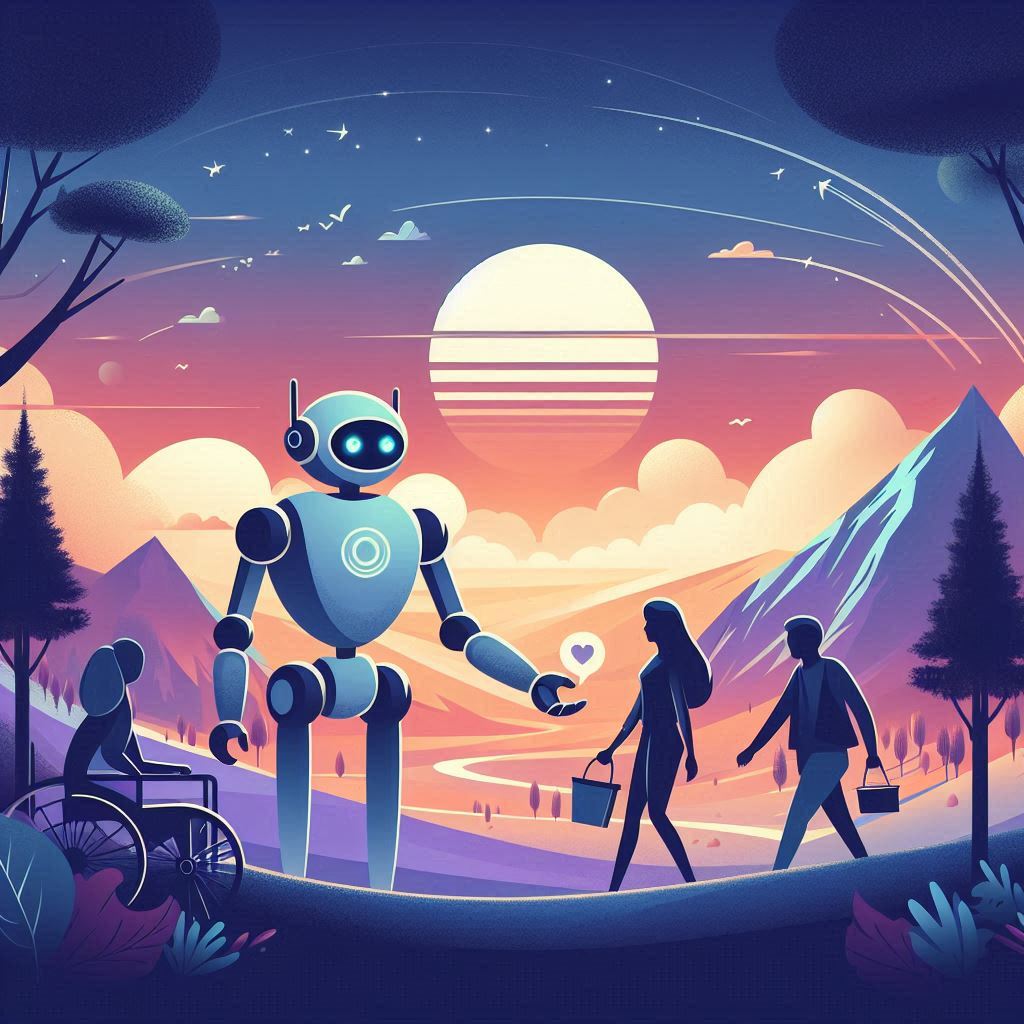
Categories of AI Agents You Should Know
The right AI solution starts with knowing the major categories in today's AI agents directory. Each category solves specific business challenges and brings unique capabilities to particular domains.
Productivity and workflow automation agents
These agents are leading workplace transformation. They handle tasks that once needed heavy human involvement. Digital assistants excel at making processes smoother, handling repetitive work, and making workflows better across organizations.
Today's productivity agents can handle complex business processes on their own [10]. Unlike basic automation tools, these AI agents adapt to their environment and get better through experience [11]. This ability to adapt makes them valuable for businesses that want to grow their operations.
Notable capabilities of productivity agents include:
- Document processing and intelligent data extraction from structured and unstructured materials
- Meeting scheduling and email categorization
- Report generation and administrative task management
- File classification and automated routing to appropriate departments
These agents create real value. Businesses report ROI ranging from 30% to 200% in just the first year [12]. Teams that use AI-based workflow automation tools see about 80% more leads and 75% higher conversions [12].
Customer service and sales AI agents
Customer service agents have come a long way. They now create individual-specific experiences by understanding customer needs, answering questions, and solving issues across many channels [1]. These agents work around the clock and give quick responses that stay consistent everywhere.
AI agents in sales handle lead generation, qualification, and nurturing tasks on their own [13]. They spot potential leads, score prospects, and create personal communications while reducing data entry errors. The AI agents market was valued at USD 3.86 billion in 2023 and should grow 45.1% yearly from 2024 to 2030 [2].
These agents make a big difference in business results. Studies show that workflow automation helps hire and onboard employees 67% faster [12]. The systems also keep up with regulatory requirements - a vital need in industries like finance and healthcare.
Research and data analysis agents
Research and data analysis agents shine at complex data tasks. They find meaningful insights while keeping facts accurate [1]. These agents use advanced tech to turn raw information into useful intelligence, working much like skilled data scientists.
Data agents can identify, clean, and improve raw datasets by themselves. They spot problems and add relevant external information [14]. They create and test analysis theories based on data patterns without manual setup. This helps them find hidden connections across different datasets that humans might miss.
Healthcare settings benefit greatly from multi-agent systems. They help solve problems from planning treatments in emergency departments to managing drug processes, which lets medical staff focus on urgent tasks [15].
Content creation and marketing agents
Content creation agents have changed how marketing teams work. They create everything from social media posts to complete marketing campaigns. These agents speed up design and creative work by making various content types and helping with design, writing, and personalization [1].
To cite an instance, Breeze content agent uses AI to create engaging content from CRM data. It helps marketers quickly make landing pages, podcasts, case studies, and blogs that match their brand voice [16]. Adobe's AI agents let B2B marketers use AI-powered content creation for email, web, and paid media, with personal touches for individuals, accounts, and buying groups [17].
Marketing AI agents also help with market mix modeling, budgeting, and forecasting [18]. They study customer behavior patterns to suggest the best strategies. They turn complex findings into clear, useful insights for decision-makers [14].
The AI agent ecosystem keeps growing in 2025. Picking the right category for your needs becomes more important each day. Each type offers clear benefits that can reshape how your organization works. The AI agents directory helps you navigate this ever-changing landscape.
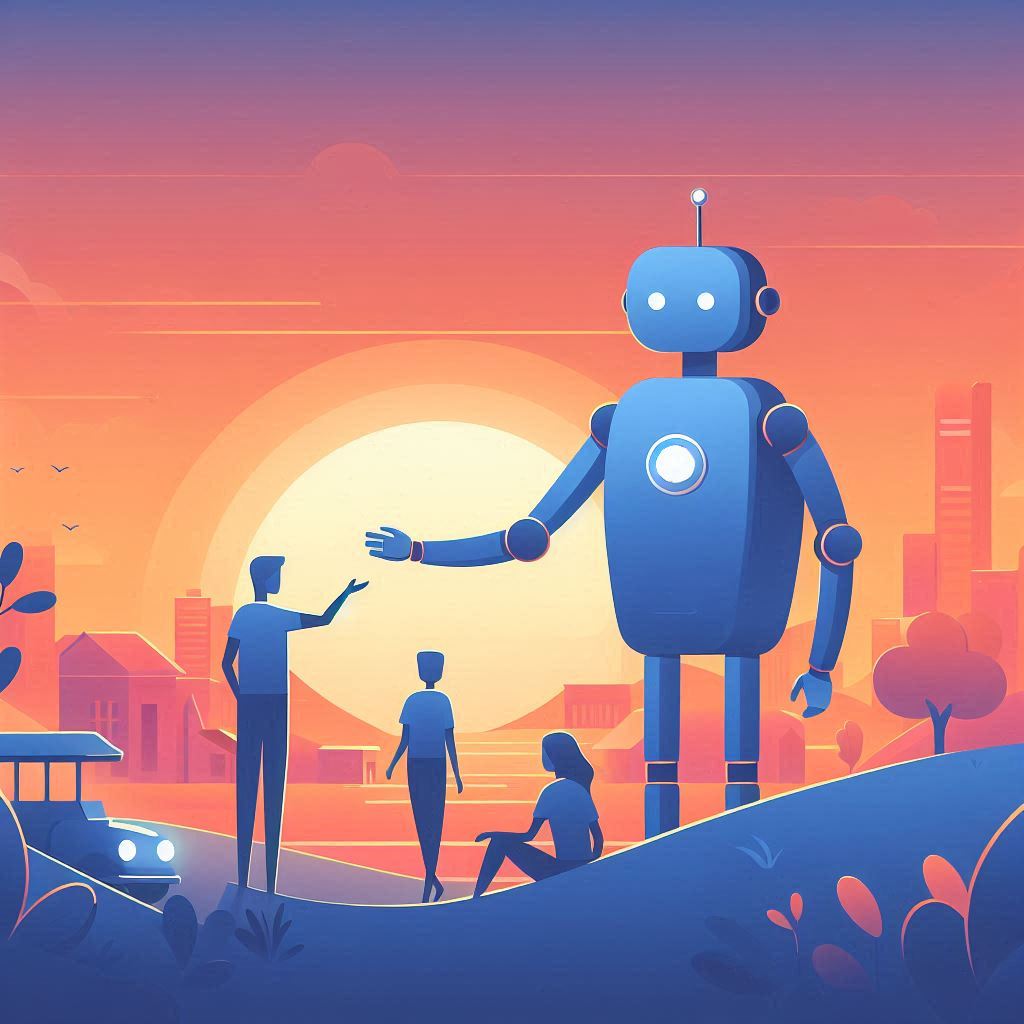
How to Evaluate and Select the Right AI Agent
Choosing the perfect AI assistant from an ai agents directory takes careful evaluation. You can't make this decision on impulse. 93% of IT leaders plan to implement autonomous AI agents within two years [4]. This makes a strategic selection process crucial to long-term success.
Defining your specific needs and use cases
Your organization must be ready for AI agents. Build the foundations first if you haven't implemented simple AI tools, set clear processes, or gotten executive support [4].
Target processes need analysis based on their complexity and structure. Financial audits or supply chain optimization make excellent candidates for AI agents because of their structured nature [4]. The agent's decisions need careful thought. Ask yourself about decision accuracy requirements and data availability.
Task scale and frequency determine your ROI directly. Processes with high volume and repetitive actions create major efficiency gains through automation [4]. The stakeholders who work with the agent shape your selection criteria, whether they're employees, customers, or business partners [19].
Key features to look for in AI agents
AI agents need these essential capabilities:
- Reasoning: Knowing how to use logic and available information to draw conclusions, make inferences, and solve problems [1]
- Action execution: Capacity to perform tasks based on decisions and plans [1]
- Perception: Skill in gathering environmental information through natural language processing or data analysis [1]
- Planning: Capability to develop strategic plans to achieve goals [1]
- Collaborative abilities: Effectiveness in working with humans or other AI agents [1]
- Self-refinement: Capacity for continuous self-improvement and adaptation [1]
The agent should work well with your existing workflows and systems [19]. Look for features that support responsible AI and safe AI practices like reflection, groundedness, fairness checks, bias mitigation, and human-in-the-loop options [20].
Reading reviews and ratings effectively
Reviews give valuable insights, as 81% of consumers research online before buying [21]. Check these specific points in AI agent ratings:
- Response accuracy and completion rates
- Error types and frequency
- Agent's availability and reliability stats [20]
AI agent satisfaction (BSAT) ratings now show up on many platforms. They use a 1-5 scale with emojis or stars [22]. Make sure reviews talk about your specific use cases rather than generic applications.
Testing before committing
Rigorous testing must come before deployment. Create test scenarios that match real-life usage patterns [23]. Quality test data needs enough test cases, diverse inputs and contexts, and scenarios that match your business goals [5].
Sandbox environments help simulate actual business conditions without risk to live systems [23]. Modern platforms let AI agents run through thousands of simulated conversations before going live [24].
The Agentforce Testing Center shows this approach in action. Organizations can test AI agents with synthetic data safely before deployment [25]. Response time, accuracy, error rates, and handling of unexpected inputs need measurement during testing [20].
Testing works best as an ongoing process. Results help you fine-tune prompts, adjust settings, and improve agent instructions [5]. This method helps you pick an AI agent that brings real business value instead of just fancy tech.

Free AI Agents Directory Resources
You don't need a huge budget to learn about AI agents. Many free resources let you test and implement powerful AI solutions before spending money on paid versions.
Top free AI agents worth trying
Google Cloud provides many free AI tools with monthly usage limits. These include Translation, Speech-to-Text, Natural Language, and Video Intelligence APIs [26]. Google AI Studio lets users access Gemini models for multimodal applications at no cost. NotebookLM creates customized AI assistants that help you understand uploaded text, video, and audio content [26].
DeepSearcher has emerged as an open-source alternative to OpenAI's Deep Research and gathered over 4,900 GitHub stars in under a month [27]. This tool combines advanced reasoning models with sophisticated search features. It uses Milvus for local data integration to deliver faster and more relevant results [27].
Open-source AI agent frameworks
You can build custom AI agents without spending money using these resilient frameworks:
- CrewAI - An orchestration framework for multi-agent AI solutions that focuses on agent collaboration [28]
- AutoGen - Microsoft's framework to create multiagent applications has earned over 27,500 GitHub stars for its exceptional flexibility [7]
- LangChain - This popular LLM library has 86,000 stars and uses a modular approach to chain steps for advanced AI tasks [7]
- LangGraph - A node-based framework in the LangChain ecosystem builds multi-agents for complex tasks [29]
Microsoft's Semantic Kernel offers a development kit for enterprise-grade generative AI applications. It mainly supports C# while Python features are being added [7].
Free trial options for premium agents
New Google Cloud users get $300 in free credits to test Vertex AI [26]. They also receive a one-time $1,000 credit per Google Cloud billing account when trying Vertex AI Agent Builder [26].
CustomGPT.ai gives users a detailed 7-day free trial with all premium features. You get access to chatbot creation tools and APIs [30]. The service needs a credit card during signup, but users can easily cancel through the billing page [30].
D-ID gives 200 free conversation sessions to new users [31]. Testers.ai has a free tier that works well for small projects and evaluations [32].
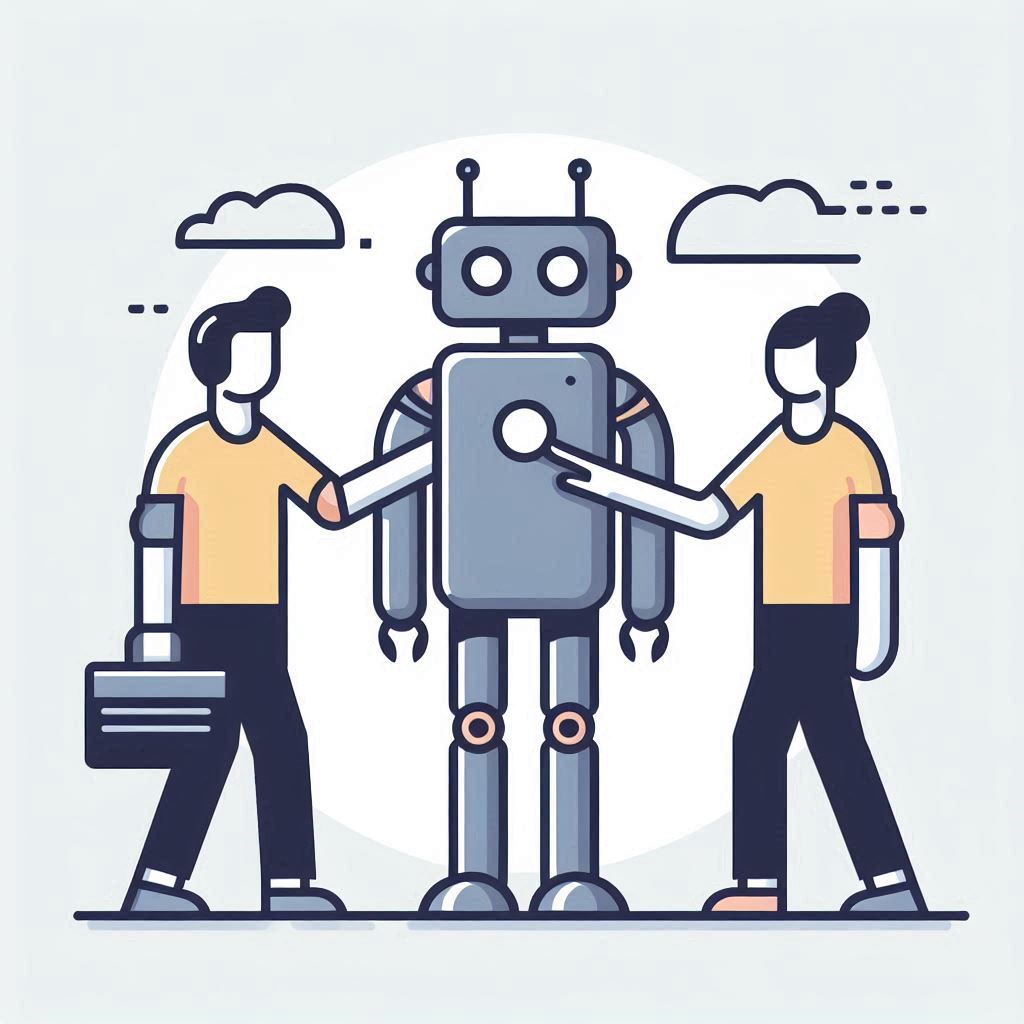
Implementation and Integration Best Practices
AI agents need careful planning and smart execution to work well. After picking the right agent from an ai agents directory, you must deploy it properly to get the best results.
Steps to successfully deploy an AI agent
A detailed assessment should kick off your AI agent deployment. Your first task is to analyze workflows and find repetitive, data-driven tasks that you can automate [33]. The next step is to review your cost-benefit analysis over three to five years. This should cover both direct costs like hardware, software, and training, along with expected benefits [33].
Your path to success needs a well-laid-out approach:
- Run a pilot program in a low-risk workflow first
- Get your data clean and ready before you start
- Set up ways to check how well the agent performs
- Take it slow and expand only after you see results [34]
Integration with existing tools and workflows
You'll need to plan carefully to connect AI agents with your current systems. Smart connectors (APIs) will link your AI smoothly with tools like CRMs, ERPs, and knowledge bases [35]. The right OAuth setup lets agents safely access data while staying compliant [36].
Data quality makes all the difference in how well your agent performs. Your databases need regular cleaning and organizing to help AI work better [35]. Companies with older systems should team up with AI experts. These specialists can help find the best ways to connect everything, even creating custom solutions when standard options don't cut it [35].
Training your team to work with AI agents
Your team's training directly affects how well they adopt AI. Start by making it clear that AI agents are here to help—not replace anyone. This helps reduce worry and resistance [37]. Teams learn much better through hands-on practice than by reading manuals [37].
Let your team participate in setting up these tools. They'll understand them better that way. Ask employees to help set goals or test new AI software. This gives valuable feedback and boosts engagement [37]. On top of that, it helps to reward team members who embrace AI agents. This motivates others to join in [37].
Measuring ROI and performance
You should track AI agent performance with metrics that match your business goals. Set specific KPIs that fit your strategy before you begin [3]. Make sure to gather baseline numbers from current processes. This gives you something to match against after deployment [3].
A full review needs immediate ROI tracking [38]. Look at both hard numbers (savings, productivity) and soft benefits (better decisions, happier customers) [3]. When you calculate AI ROI, think about all your AI projects together rather than looking at each one alone [38].
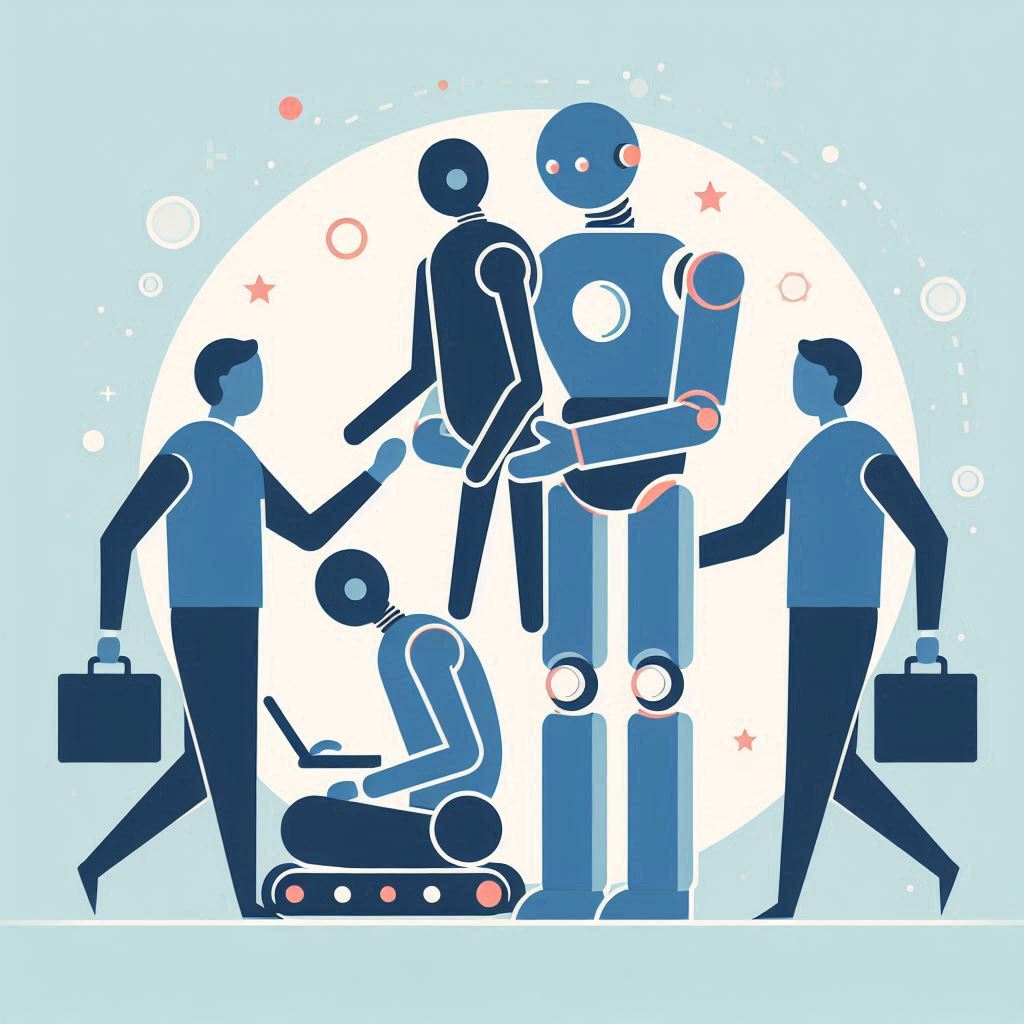
Conclusion
AI agents have become vital tools for business success, not just optional tech add-ons. Their rapid rise shows in more than 1,100 agents available in a variety of categories, which proves their growing role in modern business operations.
Your specific needs should guide the selection of an AI agent through testing and proper implementation strategies. The process might look complex, but free resources and open-source frameworks let you experiment without spending much money.
Your approach to implementation largely determines success with AI agents. A small pilot program makes a good starting point. You should integrate it with existing systems and train your team well. Your team's consistent measurement of performance against established KPIs will confirm and optimize the AI investment.
AI agents act as powerful allies in your business transformation experience. Premium solutions or free alternatives can work equally well if they line up with your specific goals and operational needs. These intelligent systems keep developing, and staying current through complete AI agent directories will help maintain your competitive edge in an increasingly automated world.
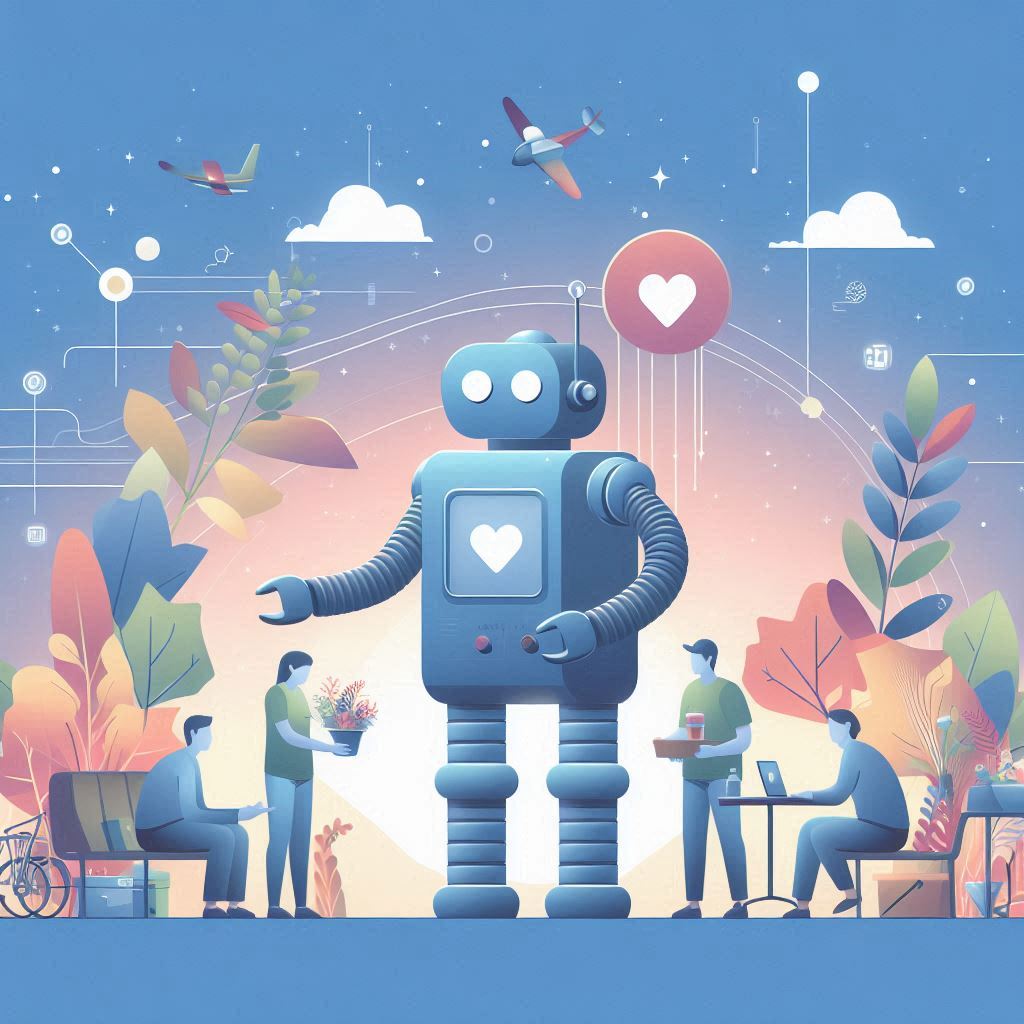
FAQs
Q1. What are AI agents and how are they transforming businesses in 2025?
AI agents are autonomous software systems that can perceive their environment, make decisions, and take actions to achieve specific goals with minimal human intervention. In 2025, they are transforming businesses by automating complex tasks, enhancing decision-making processes, and improving efficiency across various industries.
Q2. How can I navigate the AI agents directory landscape effectively?
To navigate AI agent directories effectively, start by identifying your specific needs and use case. Utilize filtering mechanisms and categorization systems provided by directories to narrow down your search. Pay attention to user reviews and ratings, and take advantage of free trials when available to test agents before committing.
Q3. What are some key categories of AI agents I should be aware of?
Important categories of AI agents include productivity and workflow automation agents, customer service and sales agents, research and data analysis agents, and content creation and marketing agents. Each category addresses specific business challenges and offers unique capabilities tailored to particular domains.
Q4. How do I evaluate and select the right AI agent for my needs?
To select the right AI agent, define your specific needs and use cases, look for key features like reasoning abilities and integration capabilities, read reviews carefully, and conduct thorough testing. Consider factors such as accuracy, response time, and the agent's ability to handle unexpected inputs during your evaluation process.
Q5. Are there any free AI agent resources available for experimentation?
Yes, there are several free AI agent resources available. These include open-source frameworks like CrewAI and AutoGen, free trials of premium agents, and no-cost tools offered by major tech companies. These resources allow you to experiment with AI agents before making any financial commitments.
References
[1] - https://cloud.google.com/discover/what-are-ai-agents
[2] - https://www.digitalocean.com/resources/articles/types-of-ai-agents
[3] - https://rtslabs.com/measuring-ai-roi
[4] - https://www.linkedin.com/pulse/ai-agents-2025-executives-guide-next-wave-amir-elion-zqbbf
[5] - https://admin.salesforce.com/blog/2025/ensuring-ai-accuracy-5-steps-to-test-agentforce
[6] - https://dev.to/aiagentstore/ai-agent-directory-in-ai-agent-store-4dif
[7] - https://medium.com/@ceo_44783/a-quick-review-of-the-most-popular-ai-agent-frameworks-june-2024-ce53c0ef809a
[8] - https://workos.com/blog/top-ai-agent-frameworks-and-platforms-in-2025
[9] - https://aiagentsdirectory.com/leaderboard
[10] - https://www.ciklum.com/resources/blog/ai-agents-explained
[11] - https://skphd.medium.com/automation-ai-workflow-and-ai-agents-understanding-the-differences-and-their-role-in-modern-7a7227d94bf0
[12] - https://masterofcode.com/blog/ai-workflow-automation
[13] - https://www.cognism.com/blog/ai-sales-agents
[14] - https://www.tellius.com/ai-agents-transforming-data-analytics-agentic-ai/
[15] - https://www.ibm.com/think/topics/ai-agents
[16] - https://www.hubspot.com/products/content/content-ai-agent
[17] - https://news.adobe.com/news/2025/03/adobe-brings-ai-agents-to-adobe-experience-cloud
[18] - https://searchengineland.com/ai-agents-digital-marketing-448342
[19] - https://relevanceai.com/blog/how-to-build-an-ai-agent-a-comprehensive-guide-for-2025
[20] - https://www.cio.com/article/3817531/a-5-point-checklist-before-you-select-and-implement-an-ai-agent-platform.html
[21] - https://www.g2.com/categories/ai-agents
[22] - https://support.zendesk.com/hc/en-us/articles/8357749459482-Collecting-AI-agent-satisfaction-BSAT-ratings
[23] - https://lanefour.com/agentforce/gaining-more-confidence-in-ai-introducing-the-agentforce-testing-center/
[24] - https://www.parloa.com/resources/blog/simulation-testing-to-evaluate-behavior/
[25] - https://www.rialtes.com/agentforce-testing-center-redefining-ai-testing-with-synthetic-data/
[26] - https://cloud.google.com/use-cases/free-ai-tools
[27] - https://zilliz.com/blog/top-10-ai-agents-to-watch-in-2025
[28] - https://www.linkedin.com/pulse/top-5-ai-agent-platforms-you-should-know-2025-edition-jadeja-aw77f
[29] - https://getstream.io/blog/multiagent-ai-frameworks/
[30] - https://customgpt.ai/customgptai-newest-feature-7-day-free-trial/
[31] - https://www.d-id.com/ai-agents/
[32] - https://testers.ai/
[33] - https://www.debutinfotech.com/blog/ai-agent-deployment-guide
[34] - https://www.datagrid.com/blog/ai-agents-workflow-design
[35] - https://dialonce.ai/en/blog-ai/trends/integrate-ai-agent-existing-systems-challenges-solutions.html
[36] - https://www.akira.ai/blog/streamlining-tool-integration-with-ai-agents
[37] - https://mediatech.group/ai-agents/how-to-train-your-team-to-work-effectively-with-ai-agents/
[38] - https://tech-stack.com/blog/roi-of-ai/
Stay Updated with AI Trends
Subscribe to our newsletter and receive weekly updates about the latest AI tools and technologies.
We respect your privacy. Unsubscribe at any time.









